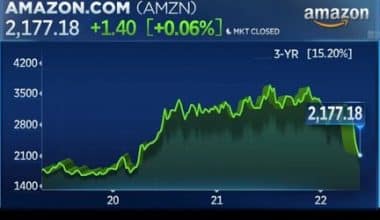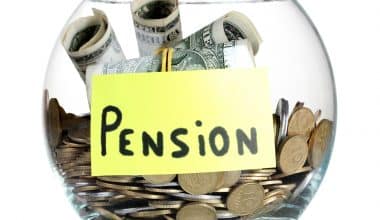While it may sound like a good idea to get investment ideas from TikTok and the like, the importance of books cannot be overemphasized. Reading books on investing will arm you with the required knowledge you need to scale through the market as a beginner. Many of these publications were developed with retail investors in mind, providing step-by-step explanations on many topics that beginning investors find intimidating, such as how to screen funds, build a portfolio, and maximize tax efficiency. The majority of these books were likewise published by famous investing industry and real estate figures who had a reputation for looking out for the interests of beginners.
If you want to start out investing, the books listed in this guide will guide you through everything you need to know
Best Investing Books For Beginners
#1. “You Can Be a Stock Market Genius” by Joel Greenblatt
The first on our list of best investing books for beginners. This book was authored by Joel Greenblatt, a well-known value investor who graduated from Columbia University’s value investing program, the same institution that launched the careers of Benjamin Graham and Warren Buffett. Greenblatt’s book “Anyone Can Be a Stock Market Genius” simplifies the method employed by prominent value investors for the layperson. The advice and case studies in this book will be valuable to any aspiring value investor, as it provides a detailed description of how investors might pick inexpensive businesses. Greenblatt also educates readers on other types of business events, such as mergers, spinoffs, and restructurings, and offers concise recommendations on how to profit from these occurrences.
#2. “The Intelligent Investor” by Benjamin Graham
Benjamin Graham, known as the “Father of Value Investing,” wrote this 1949 investment classic that is still widely available today, and for good reason. “The Intelligent Investor” is still one of the most readable, comprehensive, and in-depth books on value investing theories and approaches. Graham’s brand of fundamental analysis, which focuses on five factors: long-term growth potential, management quality, capital structure, dividend record, and dividend rate, is still utilized today. Apart from financial ratios, Graham invests a significant amount of time to examining cognitive biases. His most famous allegory is “Mr. Market,” which illustrates how true value investors should not succumb to the market’s often illogical stock values.
#3. “The Little Book of Common Sense Investing: The Only Way to Guarantee Your Fair Share of Stock Market Returns” by John Bogle
John Bogle, the late founder and chairman of the Vanguard Group, is regarded as a legend among passive investors, with many referring to themselves as “Bogleheads” in honor of his legacy. Bogle discusses in “The Little Book of Common Sense Investing” his simple yet effective technique for mirroring the market using low-cost index funds. The book is chock-full of timeless behavioral finance advice on how to diversify, control risk, moderate biases, and avoid hype and fads. Above all, the book embodies Bogle and Vanguard’s philosophy of low fees, great diversification, and sticking to the plan.
#4. “A Random Walk Down Wall Street” by Burton Gordon Malkiel
Those who are still debating whether or not to try their hand at stock selecting can read “A Random Stroll Down Wall Street” to grasp the many hurdles involved. This book, written by Princeton University economist Burton Gordon Malkiel, is credited with popularizing the “random walk” idea. Malkiel’s book shows the futility of attempting to outperform the market and predict stock values, citing scholarly research that demonstrates the weaknesses in technical and fundamental analysis. He concludes that readers should avoid stock selection and actively managed mutual funds in order to equal the market’s long-term average return.
#5. “Your Essential Guide to Sustainable Investing” by Larry Swedroe
“Your Essential Guide to Sustainable Investing” is an excellent how-to guide for beginners who want to include environmental, social, and governance, or ESG, factors into their investment portfolio and strategy. Author Larry Swedroe explains step-by-step how investors can decipher the various metrics and ratings of ESG investment products in this book. He also provides academic research on how sustainable investing has performed and outlines how investors can truly measure the social impact of their investments. With a plethora of various ESG fund options available today, this book might assist newcomers in simplifying their decision-making.
#6. “Common Sense on Mutual Funds: New Imperatives for the Intelligent Investor” by John Bogle
Although exchange-traded funds, or ETFs, are popular these days, there is still value in investing in traditional mutual funds. Another Bogle book that new mutual fund investors should read is “Common Sense on Mutual Funds.” Bogle cites historical evidence once more to demonstrate how a low-cost, diversified portfolio of simple index funds outperforms the bulk of active funds, stock pickers, and day traders. Bogle also goes into great detail about the complexities of mutual fund investment, including industry trends, tax issues, and fee ratios. This book may be very useful for investors attempting to select the finest mutual funds in a 401(k) plan.
#7. “The Black Swan: The Impact of the Highly Improbable” by Nassim Nicholas Taleb
Risk management is a critical skill for both retail and institutional investors to master. Blowing up your portfolio in the pursuit of high returns is a definite way to ruin your retirement. “The Black Swan,” by Nassim Nicholas Taleb, is a canonical work on the philosophy of risk. Taleb employs a number of thinking exercises in this book to demonstrate how people, especially investors, undervalue the dramatic effect of extremely unpredictable events – so-called “black swan” events – and then find simple after-the-fact explanations for them. Taleb also discusses how a system, such as an investment portfolio, might be made “anti-fragile” against black swan events by incorporating robustness and the ability to exploit them.
#8. “The Big Short: Inside the Doomsday Machine” by Michael Lewis
Notwithstanding its film adaptation, “The Big Short” remains the ultimate classic for new investors seeking to grasp the events surrounding the 2008 Great Recession. Michael Lewis takes readers through the perspectives, thoughts, and actions of various high-profile participants throughout this time period, including well-known hedge fund managers such as Michael Burry and Steve Eisman. When it comes to pinpointing the roots of the mortgage disaster, the book is frank, and it provides a comprehensive description of the subsequent ramifications and implications of the collapse.
#9. “All About Asset Allocation” by Richard Ferri
Rick Ferri is a former fighter pilot in the United States Marine Corps, a stockbroker, and a college professor. He has been featured in Forbes, the Wall Street Journal, and other financial publications. He now works as a fee-only financial consultant with the certification of chartered financial analyst, or CFA. Ferri is well-known in the passive investment industry for his “Core-4” model portfolios, which provide logical asset allocation advice to beginning investors. In “Everything About Asset Allocation,” Ferri explains the ideas underlying several asset classes, the best ways to mix and match them, how to manage your asset allocation over time, and how to choose funds. This book provides practical advice for investors putting together a portfolio.
#10. “The Bogleheads’ Guide to Retirement Planning” by Taylor Larimore, Mel Lindauer, Richard Ferri, and Laura Dogu
“The Bogleheads’ Guide to Retirement Planning” is another Ferri book that combines the greatest components of John Bogle’s passive investment theory with sound personal finance and retirement planning ideas. Successful investing entails more than just building a high-performing investment portfolio, and this book lays out the important next steps. Ferri’s book delves into the complexities of various retirement plans, how taxes influence seniors, instances of withdrawal techniques, and even disability and estate planning. The book also includes numerous real-life anecdotes submitted by around 40 Boglehead investors.
Real Estate Investing Books For Beginners
When it comes to investing, the adage “information is power” is especially true. Real estate has its own set of hazards, and it pays to be informed before getting involved. Taking the initiative and teaching yourself is a good approach to become acquainted with real estate investing before you get too far ahead of yourself. But where do you begin with so many resources? Here are the best books on real estate investing for beginners.
#1. “The Book on Rental Property Investing” by Brandon Turner
The first on our list of the greatest books for beginning real estate investors. It’s no surprise that the co-host of The Larger Pockets podcast and author of several best-selling real estate investment books appears on this list.
The Book on Rental Property Investment outlines four distinct ways for generating passive income through real estate. Everything from financing new investments to finding deals and postponing or avoiding taxes is covered in the book. This is a must-read if you want to start investing in rental property.
#2. “The Book on Tax Strategies for the Savvy Real Estate Investor” by Amanda Han and Matthew MacFarland
Tax techniques may appear complex, but taxes are something every real estate investor should be concerned with. Capital gains tax, for example, can significantly reduce your investment income. That is why this book is among the greatest publications for beginning real estate investors.
This book will show you how to deduct more, invest more wisely, and ultimately pay less tax. Meanwhile, its advice and insights can help you prepare for tax season. This book will teach you how to make the most of your taxes.
#3. “How to Invest in Real Estate: The Ultimate Beginner’s Guide to Getting Started” by Brandon Turner and Josh Dorkin
This book by Brandon Turner and Josh Dorkin provides an excellent review of the fundamentals of the real estate investing industry. If you want to learn more about your real estate investment alternatives, here is a good place to start.
How to Invest in Real Estate does not provide a single strategy; rather, it demonstrates the several options available to you. Turner and Dorkin showcase more than 40 distinct experiences from successful, modern real estate investors, whether it’s flipping, investing as a side job, or full-on property management.
#4. “The ABCs of Real Estate Investing” by Ken McElroy
Because of its emphasis on market knowledge, negotiating agreements, and sustaining cash flow, The ABCs of Real Estate Investment makes the list of top books for beginner real estate investors. The ABCs of Real Estate Investment, in contrast to the first book on the list, concentrates on larger assets such as apartments, condos, and townhomes.
This book outlines specific tactics for locating larger investment properties, as well as how to effectively collaborate with other real estate investors to achieve larger purchases. You must maintain them lucrative after you possess them. The ABCs of Real Estate Investment not only teaches you how to identify, assess, and acquire property, but it also provides you with dependable property management tools.
#5. “What Every Real Estate Investor Needs to Know About Cash Flow” by Frank Gallinelli
You must assess cash flow if you want to maximize your real estate investments. Gallinelli concentrates significantly on numbers in this book. Because of its emphasis on arithmetic, it makes our list of the best books for beginning real estate investors. Gallinelli explains how to make arithmetic work for you, whether it is a strength or a difficulty.
This book teaches you the key metrics you need to make sound investment decisions. Net present value, discounted cash flow, return on equity, and other metrics can help you go from novice to seasoned investor.
#6. “Real Estate Investing Gone Bad: 21 True Stories of What NOT to Do When Investing in Real Estate and Flipping Houses” by Phil Pustejovsky
It can be just as beneficial to understand what not to do. With this book, you may avoid many of the common blunders made by real estate investors and house flippers. Learn from these investors without putting your money at risk. This is a fantastic resource for novices because it allows you to be aware of the hazards without taking them. Note that some people spent a lot of money for these lessons. You can learn them by purchasing the book.
#7. “The Book on Investing in Real Estate with No (and Low) Money Down” by Brandon Turner
Because of its emphasis on optimizing investments with fewer funds, this book enters our list of the best books on investing for beginners. The book focuses on credit-leveraging options for purchasing real estate investments. Whether you’re seeking private money or lenders, Turner’s book provides imaginative solutions to get your investment funded while avoiding various funding traps.
#8. “Buy, Rehab, Rent, Refinance, Repeat” by David M. Greene
The Buy, Rehab, Rent, Refinance, Repeat (BRRRR) Method is a real estate investing method in which you gradually expand your investment portfolio from a single property. This book goes into the specifics of the strategy, explaining how to get the most out of each phase. Discover how to negotiate sales, which renovations add the greatest value, when to flip, and how to use the equity in your investment property.
How Should A Beginner Start Investing?
- Start investing as early as possible.
- Decide how much to invest.
- Open an investment account.
- Pick an investment strategy.
- Understand your investment options.
Can I Start Investing With $500?
You can consider putting $500 into an individual retirement account (IRA), which allows you to invest in stocks, bonds, or mutual funds. If you don’t already have an IRA, $500 can get you started at most banks and credit unions.
How Much Is $500 A Month For 20 Years?
Saving $500 per month amounts to about $180,000 at the end of 20 years.
In Conclusion,
These books on investing for beginners cover a wide range of topics, but they all demonstrate that with proper planning and diligence, anyone can become a successful investor. All that is required to get started is knowledge, a positive mindset, and a small amount of money. You can do it while still working full-time, or you can turn your investment into a full-time property career.
Related Articles
- The 2023 BEST BOOKS FOR REAL ESTATE INVESTORS: Top 17 Picks
- Most Famous Investors and Their Portfolios
- CARTOON NETWORK LOGO: The History of The Cartoon Network






